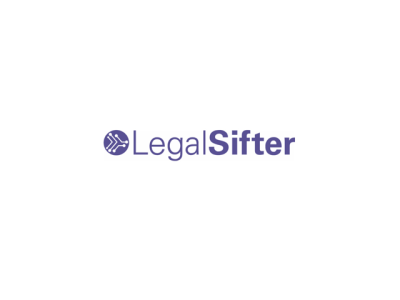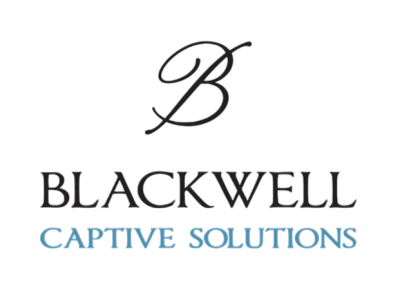Can you explain exactly what Blackwell Captive does and what problem it solves?
Blackwell Captive Solutions helps employers of 50 to 1,000+ employees take control of their healthcare spend. For most, this is their second largest budget line-item, behind payroll. Blackwell curates shared reinsurance arrangements through the formation of captive insurance companies. These captive insurance companies serve as conduits to eliminate superfluous expense, mitigate risk, and provide access to the best healthcare for employees and dependents at the best price.
What attracted you to Blackwell and why did you join the company?
I was attracted to Blackwell by the opportunity to make a substantial, positive impact on the inefficient and expensive healthcare delivery model that exists today in America. The average family of four in the U.S. pays more than $25,000 annually for health insurance to receive sub-optimal care and outcomes. The ability to rectify this inequity is what motivates me daily.
Tell me about your team and approach.
There is a strong culture of collaboration that exists within the organization. We have a team of talented individuals at Blackwell who are solely driven by a desire to eradicate waste and inefficiency in the group health insurance system. Everyone is dedicated to the mission and has a “whatever it takes” mindset to accomplish our mutual objectives.
What trends are you seeing in this market / how is Blackwell differentiated?
We are seeing employers continuously absorbing double-digit health insurance rate increases, passing on the added cost through increases to employee deductibles and out-of-pocket expenses, and still having to limit care. This is due to a misalignment of incentives by traditional, mainstream health insurers. “Big Health” is making no effort to educate the public about becoming better consumers of healthcare. Most consumers spend more time researching the purchase of a home, car or even a television than they do seeking the best healthcare provider for their treatment. The status quo in the traditional market allows consumers to wander aimlessly through the labyrinth that is American healthcare, while stifling transparency and concealing the data they need to make informed decisions. When people utilize expensive providers and facilities with no documented track record of successful outcomes, the traditional insurers are more than happy to bake the cost of those inflated claims into next year’s renewal and layer a profit margin on top. Those egregious costs are subsequently compounded on an annual basis, with future rate increases being applied to already inflated premiums.
What are some of the specific challenges you have faced and how are you addressing them?
The biggest challenge is go-to-market strategy and differentiating our value proposition in a competitive market. We need to demystify misconceptions about group captives. Many people think that the bigger the captive the better, but volume does not always equal stability and profit. That assumption diminishes the impact and the importance of prudent underwriting and risk management. This is a strength of Blackwell’s. Where most captives have a single underwriting solution or underwrite everything themselves, Blackwell has two distinct underwriting partnerships: a managing general underwriter (MGU) with years of collective experience from industry leaders and a direct carrier relationship with an “A+”-rated carrier. These relationships give us the expertise to underwrite any risk and to serve a broader array of clients than our competitors can. We also take a consultative approach of advising our clients about the most cost efficient way to pay for health insurance, while our competitors avoid making recommendations for fear of accountability. We are confident that Blackwell will rise to the top of a crowded marketplace due to the unique value we are able to deliver.
What are the benefits of working with a group like Carrick Capital Partners?
Carrick Capital Partners has been a critical partner, supporting our efforts to improve the healthcare experience in the United States. Having access to the collective professional experience and acumen of the Board of Directors is priceless. These experienced business leaders and entrepreneurial thinkers are able to share guidance and insights based on a wide array of skills and perspectives, which are invaluable to me as the leader of a small, but rapidly growing enterprise.
What is your advice for other growing businesses considering private equity?
As you are weighing the financial risks and rewards, also give serious consideration to the experience and personalities of the people who will become your partners in growing the business. Do these people ask the right questions, share your vision and values, bring relevant expertise to the table, and do you feel you can collaborate and build something together? If you do move forward, it is crucial to consistently overcommunicate with your advisors on the private equity board. Do not presume your challenges are unique to your situation. Listen carefully to their insights and advice. My board looks at business challenges from every angle, drawing on their own extensive experience to shed new light on the problems I face.
What is next for Blackwell Captive?
In the coming months, Blackwell will continue to expand our infrastructure to incorporate proprietary underwriting capabilities, AI, and clinical expertise into our group captive offerings. We will also expand the flexibility of our programs by offering a multitude of solutions to align with the most common health plan renewal cycles.
What is your vision for Blackwell moving into the future?
We want to help employers be able to affordably provide healthcare insurance in a way that empowers Americans to become better consumers of healthcare and achieve the best possible outcomes at the best possible price.
From an employer perspective, it comes down to cost containment because if the cost of health insurance and healthcare continue to increase it is going to become unsustainable for employers to offer an employer sponsored health insurance plan. So, our goal is to help those employers mitigate their risk so that they do not experience a catastrophic financial event. In the category we serve, companies cannot afford for their expenses to double.
If things go as they may with the ACA and Medicare and Medicaid reduction, organizations are going to be forced to come to a captive model because their current model will not be sustainable. Our role will be to help these organizations proactively get ahead of this before they have no choice.






